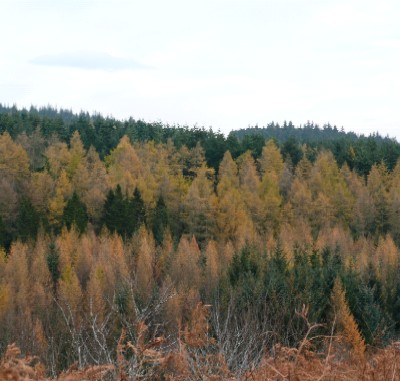 Climate change
Climate change
The contribution and mitigation of GHG emission due to microbial activity is the focus of our climate change research. We are examining the effect of land use change on functional microbial groups (methane oxidiser, nitrogen fixing, nitrifier and denitrifier) and related processes (GHG emission). The data is then up-scaled to predict the net emission and mitigation of GHG due to change in land use at regional to national levels. Other areas of interest include utilising microbial capability to mitigate methane emission form landfills and diary industries.
Since microbial communities are responsible for most vital ecological functions, any detrimental effects on their diversity and activity may lead to severe loss in environmental sustainability. However, microbes, like other organisms, are vulnerable to climate change. In collaboration with our partner in Germany (University of Bayreuth), we are studying the response of microbial communities to extreme events. As most climate models predict an increase in extreme events (flooding, severe draught, rapid freezing and thawing), we are exploring the response and resilience of microbial communities to such events.
Projects
- 2007-2009: Development of an innovative technology to capture emissions from dairy farms, using unculturable soil methanotrophs ; Funding Agencies: MAFF, New Zealand, MDT ( in Collaboration with Landcare Research, New Zealand, University of Victoria, Canada). PI
- 2007-2010: Effect of land use change on methanotrophic communities (Metagenomic approach). PI. Funding: MDT. Collaborator: University of Warwick, University of Aberdeen).
- 2007-2010: Methane dependent denitrification in soils. Funding: BBSRC-CASE; Collaborator: University of Aberdeen).
- 2008-2011: How does change in land-use between set-aside and cropping impact soil biodiversity and function? Funding Agency: DEFRA, PI at Macaulay Land Use Research Institute (in collaboration with HRI Warwick, CEH Oxford).
- 2006-2011. Impact of soil management practices on soil microbial community and processes (Work Package 3.3: Management of soil). Funding Agencies: SEERAD, UK. Joint PI.
Group members:
- Dr. Brajesh K Singh
- Mr Loic Nazaries (PhD student)
- Ms Lucinda Robinson
- Ms Nadine Thomas
External collaborators.
- Prof Colin Murrell (University of Warwick),
- Dr Kevin Tate, Dr. Surinder Saggar (Landcare Research, New Zealand),
- Dr. Liz Baggs & Prof Pete Smith (University of Aberdeen) and
- Dr. Dave Reay (University of Edinburgh),
- Dr. Real Roy (University of Victoria, Canada),
- Dr. Julia Gebert (University of Hamburgh, Germany),
- Prof Anke Veronika Jentsch and
- Prof Carl Beierkuhnlein (University of Bayreuth, Germany).
Selected Publications
- Singh, B.K., Tate, K.R., Kapadia, G., Hedley, C.B., Macdonald, C.A., Millard, P. and Murrell, J.C. (2007). Effect of afforestation and reforestation of pastures on the activity and population dynamics of methanotrophic bacteria. Applied and Environmental Microbiology. 73: 5153-5161.
- Singh, B.K. and Tate, K.R. (2007). Biochemical and molecular characterization of methanotrophs in soil from a pristine New Zealand beech forest. FEMS Microbiology Letters 275: 87-97.
- Tate, K. D.J. Ross, S. Saggar, C.B. Hedley, J. Dando, B.K. Singh and S.M. Lambie (2007). Methane uptake in soils from Pinus radiata plantations, a reverting shrubland and adjacent pastures: Effects of land-use change, and soil texture, water and mineral nitrogen. Soil Biology and Biochemistry. 39:1437-1449.
|
Updated: 23 Jan 2024, Content by: BS
|

